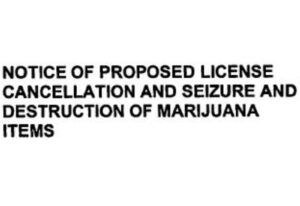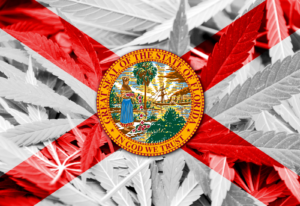After a rollercoaster open market experiment, Oregon finally raised the walls on its cannabis program earlier this year. Typically, there are two broad approaches a state may take in walling off a regulated cannabis program, dormant commerce clause issues notwithstanding. The first is by enacting residency requirements for marijuana business ownership. Oregon did away with those in 2016. The second is by capping the pool of available licenses.
Oregon chose the second path early last month, when it adopted a license application moratorium retroactive to January 1, 2022, extending through March 31, 2024. This blog post is oriented toward persons unfamiliar with the Oregon market. It gives a high-level overview of how entry works in this new, moratorium context.
You have to buy your way in to the regulated Oregon cannabis market
There is no way to get a new Oregon Liquor and Cannabis Commission (OLCC) marijuana license directly from the Commission, with one possible exception. I’ll discuss that in the next section. Instead, you have to find another licensee willing to sell. In that case, OLCC will work with the seller to “surrender” its license in favor of a replacement marijuana license of the same type, issued to the buyer. We have been handling these sales for years. They often take the form of an asset purchase agreement and there is some art to the process.
Prior to the current moratorium, a more limited moratorium existed solely in the class of producer licenses. A very large number of these licenses changed hands going back to 2018 or so, with prices floating in the $200K – $250K range. We haven’t noticed any movement in this pricing following the 2022 moratorium, but it’s still very early and market factors may inform the analysis– starting with the fact that wholesale flower prices seem to be lower in Oregon than any other state.
Prior to this year, we also ran a ton of deals on other classes of licenses and businesses, partly because OLCC “paused” application acceptance for a spell; but also because OLCC was very slow in processing applications leading up to that point and for some time after. These deals tend to be priced differently than the producer sales. With retailers, for example, parties tended to allocate little value to the license itself. Instead, pricing was customarily pegged to multiples of revenue. That said, over the past few years more sophisticated purchasers are pricing stores (and other going concerns) with modified EBITDA and other proprietary models.
Now that the amount of retail licensees is also capped in Oregon, we may see these licenses change hands for a greater premium on the secondary market. I’m guessing this will also be true of wholesalers and processors to a lesser extent. We’ve only got a couple of those sales going right now in the office and again, it’s early.
Another way into the regulated Oregon cannabis market? The “marijuana license reassignment program”
Last month, my colleague Jesse Mondry wrote an excellent post on this newly envisioned, alternative point of entry. You can find it here. In short, the legislature and OLCC have concocted a vague nod to social equity via the possibility of a “marijuana license assignment program” briefly described in House Bill 4016.
Do we know who might constitute a “qualified applicant” under this new marijuana license reassignment program? No. In fact, we don’t even know if the program will ever take hold. HB 4016 provides only that OLCC “may” establish this program, and it gives no timeline for OLCC to decide.
Anyone who deals with OLCC regularly understands that the Commission is well-intentioned but overworked, understaffed, and more reactive than proactive in nature. That said, my guess is OLCC will ultimately find a way to bring in social equity applicants–and perhaps other deserving candidates–under a reassignment program. I say this not just because OLCC is currently under an equity audit from the Secretary of State, but because it seems like the right thing to do.
If and when the license reassignment program launches, it will likely be limited to a discrete number of licenses for a limited pool of candidates. For now, everyone on the outside of the Oregon marijuana program is in the same boat, from cannabis MSOs to victims of the War on Drugs. Everyone has to buy their way in. We all know who that favors.
Need Help With Oregon Cannabis Law?
























